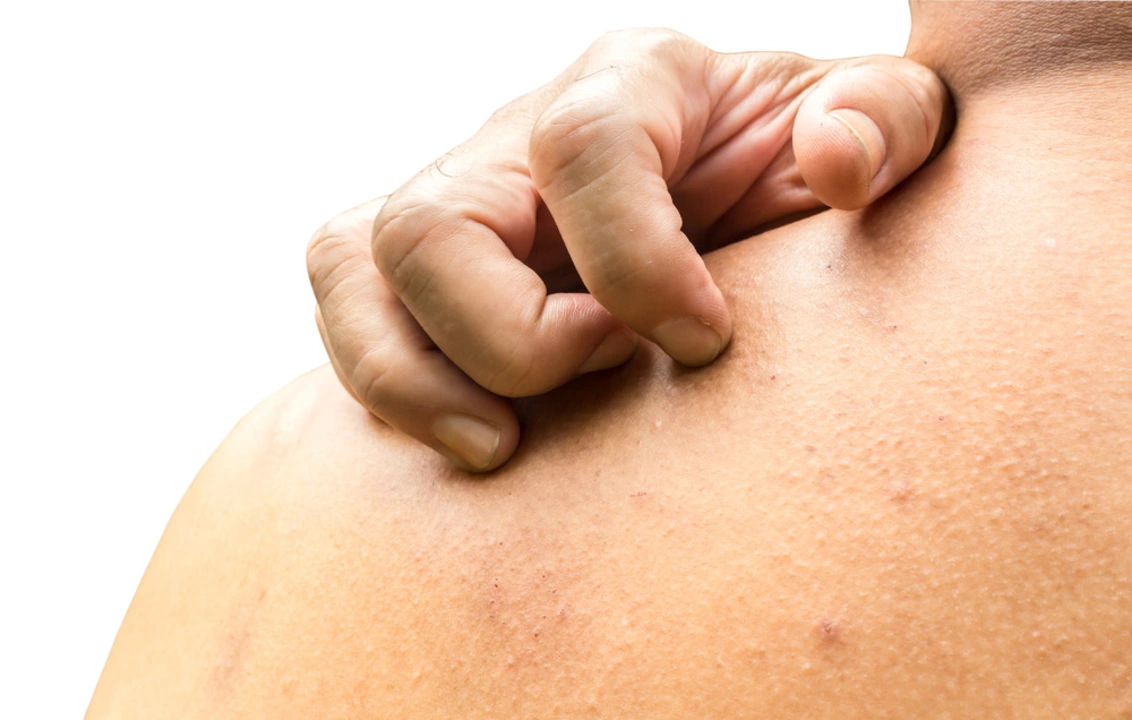Chronic pruritus: what causes long‑lasting itch and how to get relief
Chronic pruritus, or long‑lasting itch, affects more people than you might think. It can be constant or come and go, and it often won’t stop without figuring out why. If you scratch until your skin breaks, or if the itch wakes you at night, you need practical steps, not vague advice.
What causes chronic itch? Common reasons include dry skin, eczema, psoriasis, and allergic reactions. Sometimes internal problems like liver disease, kidney disease, thyroid issues, or diabetes can trigger persistent itch. Certain medications and nerve problems also cause chronic pruritus. Older adults often get chronic itch simply because their skin gets thinner and drier.
How do you know when to see a doctor? See a healthcare provider if the itch lasts more than six weeks, spreads across large areas, or comes with other symptoms such as weight loss, fever, jaundice, or changes in urination. Also get help if scratching causes infections, sleep loss, or anxiety. Early tests can find treatable causes.
What you can do right away. Start with gentle skin care. Use a fragrance‑free cleanser and lukewarm water. Pat skin dry and apply a thick moisturizer within three minutes to lock in moisture. Look for products with ceramides, glycerin, or petrolatum. Avoid harsh soaps, long hot showers, and tight clothing that rubs the skin.
Topical treatments that help. Over‑the‑counter hydrocortisone can reduce inflammation for mild eczema or dermatitis. Calamine lotion or menthol creams may give short‑term relief. Prescription creams like stronger corticosteroids or calcineurin inhibitors work when OTC options fail. Always follow medical advice for long‑term use.
Systemic and medical options. If topical care isn’t enough, doctors may suggest antihistamines, oral steroids for short courses, or medications that target nerves such as gabapentin or pregabalin. Newer drugs and biologics can help specific conditions like atopic dermatitis. If an internal disease is causing the itch, treating that condition often reduces the symptom.
Simple habits that reduce flare ups. Keep indoor humidity around forty percent, wear cotton, and avoid known triggers like certain detergents or perfumes. Cut nails short and consider cotton gloves at night to protect skin from unconscious scratching. Stay hydrated and use a humidifier in dry months.
Tests and referrals. Your clinician may order blood work, liver and kidney tests, thyroid checks, or skin biopsies. If needed, you could be referred to a dermatologist, allergist, or neurologist depending on suspected cause.
Keep a simple itch diary to track triggers and treatments. Write down foods, soap, weather, new medicines, and stress levels. Note when itch starts, what helps, and how long relief lasts. This record makes clinic visits faster and tests more useful. If you’re using new meds or supplements, list doses and timing so your doctor can spot drug‑related causes quickly. Ask about safe, tested treatment options.
Doxepin for Itching: A Relief for Chronic Pruritus Sufferers
As a chronic pruritus sufferer, I know firsthand how relentless itching can impact one's quality of life. Recently, I discovered that Doxepin, an antidepressant medication, can bring significant relief for itching. Studies have shown that Doxepin's antihistamine properties can help reduce itch intensity and improve sleep quality in patients. It's important to consult with your healthcare provider before starting any new medication, but I must say that Doxepin has been a game-changer for me. I'm grateful to have found a solution that allows me to live more comfortably and itch-free.
View More
